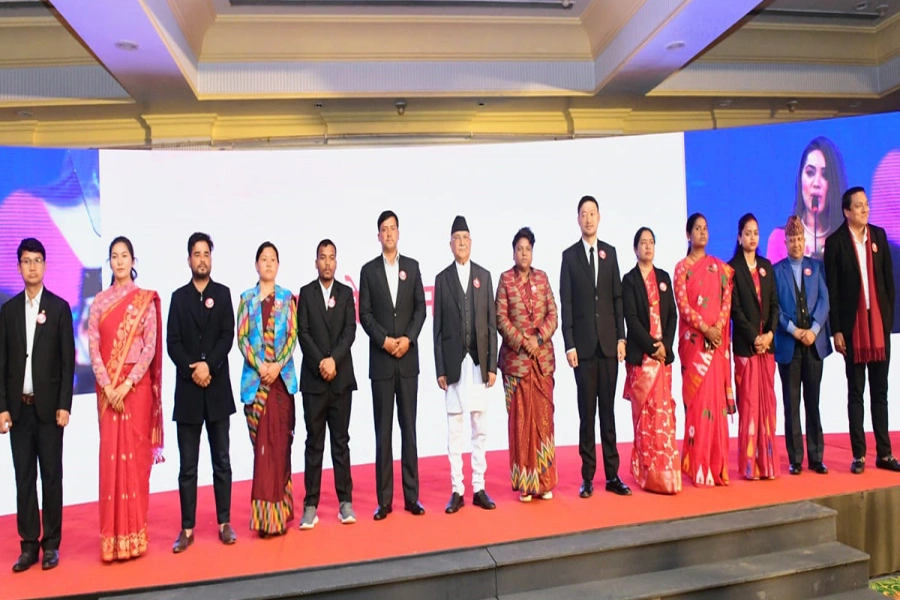KATHMANDU, Sept 27: On the call of District Administration Office (DAO) Kathmandu to submit their compulsory liability details, six transport committees have claimed expenses worth around Rs 66 million. The DAO's call was aimed at determining the amount to be released from the bank accounts of the transport committees, which were frozen in May to put an end to transport syndicates.
Araniko Transportation Service Committee, Samyukta Yatayat Sanchalak Samiti, Valley Swayambhu Bus Service Sangh, Kantipur Yatayat Vyavasayi Sangh, Kirtipur Minibus Byawasai Sangh, and Swayambhu Mini Truck Entrepreneurs Committee have submitted their expenses details to the DAO.
According to a DAO official, Araniko has claimed Rs 52.1 million, Samyukta Yatayat Rs 8.69 million, Valley Swayambhu Rs 3.58 million, Kantipur Yatayat Rs 916,000, Kirtipur Minibus Rs 377,000, and Swayambhu Mini Truck has claimed Rs 233,000 as their compulsory liabilities.
The expenses claimed by the transportation entrepreneurs include medical expenses, accident compensation, spare parts of vehicles, and other miscellaneous expenses.
According to the DAO official, the office is yet to verify the details submitted by these six committees. "We also need to check whether their bank accounts have the balance as per their claims or not."
CDOs given 15 days for collecting property details of transport...

Interestingly, the decision-making process for releasing amounts from the frozen accounts has been changed in favor of the transport entrepreneurs. Earlier, in such cases, the verified details would be sent to the Ministry of Home Affairs, which would then forward it to the Ministry of Finance for approval. But this time, the DAO itself will endorse the payment claimed by the transport entrepreneurs.
Meanwhile, 29 transport committees in Kathmandu have submitted details of their assets to the Kathmandu DAO. In Pokhara, the Prithvi Highway transportation committee has submitted their details of expenses to the Kaski DAO.
In an effort of ending syndicates in the transportation sector, the government had frozen bank accounts of transport entrepreneurs on May 6 this year. The government had made the move after the entrepreneurs halted vehicles across the country against the government's decision of scrapping their committees and requiring them to register as companies.
Nepal Rastra Bank (NRB) had then issued circulars to all banks and financial institutions to freeze the bank accounts of 245 committees run by transport operators. According to the law, the government can seize the money in the bank accounts of the organizations whose registrations have been scrapped.
Where is the extra money paid by commuters?
The minimum fare determined by the government for a local bus ride is Rs 14, but vehicle operators have been charging Rs 15 from the passengers, stating that they do not have the change. Until Monday, the minimum fare was Rs 13, but even then the public vehicles charged Rs 15 from each passenger.
On Wednesday, Chairperson of the Parliament's Development and Technology Committee Kalyani Kumari Khadka asked government officials where the passengers' extra money goes.
Khadka said the unaccounted amount could be in millions every day across the country.
For distances of up to 5, 6, and 8 kilometers, the government-approved rates are Rs 16, 17, and 18 respectively. But the public vehicles have been charging Rs 20 from the commuters in lump sum.
Khadka said that in her rough calculation, commuters in the Kathmandu Valley alone have been paying Rs 2 to 3 million extra each day, assuming that as many as 1.5 million people used public transport daily. This amount could reach Rs 730 million to Rs 1.09 billion each year, she added.
"Officials have been influenced by the transport syndicates, so they agreed to hike bus fares," she claimed.
Secretary at the Ministry of Physical Infrastructure and Transport Madhusudan Adhikari said that the passengers have a right to ask for change, and they can lodge complaints if the vehicle operators denied giving them change under any pretext.




































